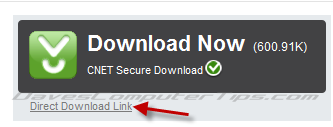

- #CNET MALWAREBYTES FREE VERSION PATCH#
- #CNET MALWAREBYTES FREE VERSION WINDOWS 10#
- #CNET MALWAREBYTES FREE VERSION SOFTWARE#
- #CNET MALWAREBYTES FREE VERSION PASSWORD#
#CNET MALWAREBYTES FREE VERSION SOFTWARE#
They startdout amazing, then they started to try and tempt peopel into downloading other pieces of software, then went to deceptive practices in theri efforts to get you do download things and they included BAD software like the "ASK TOOKBAR". I used to be a big fan of theirs., However they have changed and each step has been from bad to worse and worse than that. To proactively protect your PC against these types of threats, consider subscribing to Malwarebytes Premium to ensure that your PC is protected regularly.I know people THINK CNET is safe.

To check for a virus or malware on your PC, you can use Malwarebytes' free antivirus to scan and remove threats.
#CNET MALWAREBYTES FREE VERSION PASSWORD#

The best way to protect against a virus infection and malware is to use a legitimate antivirus and anti-malware solution such as Malwarebytes Premium that protects your PC against not just viruses but other threats, too. Although it can’t damage the physical hardware of your device or network equipment, it can steal, encrypt, or delete your data, alter or hijack core computer functions, and spy on your activity.

Malware’s focus is all about making money off you. Viruses self-replicate by modifying or completely replacing files. A virus infection is harmful software triggered by performing common tasks such as opening an email attachment, launching an infected program, or viewing an ad on a malicious site. Windows as an operating system faces a lot of threats, and using security software that includes antivirus and anti-malware protection like Malwarebytes Premium means that you are proactively protected against these types of threats.Įven in 2021, viruses are still persistent threats.
#CNET MALWAREBYTES FREE VERSION WINDOWS 10#
Windows 10 PCs face threats like ransomware, in which your computer's contents are encrypted and you can't access them without paying a ransom (usually in cryptocurrency), zero-day attacks which are exploits of brand new vulnerabilities before the software developer knows about it or has a chance to fix it, and other advanced forms of malware that are much more sophisticated than your traditional computer virus (although those remain a threat as well). Microsoft issues 83 patches, one for actively exploited vulnerability.
#CNET MALWAREBYTES FREE VERSION PATCH#


 0 kommentar(er)
0 kommentar(er)
